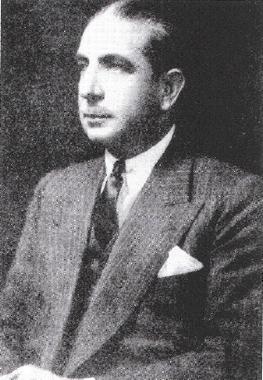
Henri Turner
The Life and Legacy of Henri Turner: A Pioneer in Endocrinology
Henri Turner, born on October 28, 1892, in Paris, France, grew up in a family deeply rooted in the medical profession. His father was a physician, instilling in Turner a respect for medicine that would shape his life’s work. His mother was a homemaker, providing a balanced and nurturing environment alongside his younger sister, who rounded out the close-knit family. Turner attended local schools in Paris before embarking on higher education, following his father’s footsteps in the medical field—a path heavily influenced by the family’s long-standing medical background.
After graduating from the University of Paris with a medical degree in 1916, Turner’s career trajectory was immediately impacted by the outbreak of World War I. He served as a medical officer in the French army, which not only refined his medical expertise under challenging conditions but also deepened his compassion and resilience. After the war, he joined his father’s medical practice in Paris, continuing the family legacy and setting the stage for his career in endocrinology.
Outside of his demanding medical career, Turner had a wide array of interests. A lover of the arts, he frequently visited museums and galleries, appreciating the rich culture that Paris had to offer. Classical music was a particular passion, and he found solace in playing the piano during quieter moments. His literary tastes ranged from medical journals to classic novels, and he was a well-read individual with an insatiable thirst for knowledge. Turner’s travels across Europe served both professional and personal purposes, fueling his interest in history, particularly medical history. Not content with merely practicing medicine, he also wrote essays on art, history, and philosophy, showcasing his intellectual versatility.
In 1920, Turner married Marie-Louise Dubois, a well-educated woman who became his lifelong companion. They settled in a suburb of Paris, building a family grounded in education and intellectual curiosity. The couple had three children, all of whom pursued higher education under the influence of their parents’ academic and professional dedication. Marie-Louise was a significant figure in Turner’s life, managing the household and hosting gatherings for friends and colleagues. Their family became a symbol of balance between professional excellence and personal fulfillment.
Henri Turner’s career was profoundly influenced by the mentors and medical pioneers he encountered. While studying medicine, he was impacted by the works of Jean-Martin Charcot and Pierre Marie, both giants in the field of endocrinology. Sigmund Freud’s theories also left a mark on Turner’s approach to patient care, blending compassion with scientific rigor. Drawing inspiration from historical medical figures like Claude Bernard and René Laennec, he valued interdisciplinary collaboration, frequently working alongside specialists in neurology and psychiatry. This scientific curiosity and open-mindedness fueled his commitment to understanding complex medical conditions.
Henri Turner is best remembered for his groundbreaking work in endocrinology, most notably for describing Turner syndrome. In 1938, he published a paper detailing the clinical features of the syndrome, including short stature, gonadal dysgenesis, and various physical anomalies. Though Turner did not identify the chromosomal cause, his detailed observations laid crucial groundwork for future research. His contributions to the field of endocrinology extended far beyond this one syndrome; he authored numerous papers on endocrine disorders and their treatments, continually pushing the boundaries of knowledge. Known for his meticulous clinical observations and compassionate patient care, he left a lasting impression on both his patients and his colleagues.
As a teacher and mentor, Turner influenced many young physicians and researchers, instilling in them a respect for rigorous clinical observation and compassionate care. His legacy extends through the field of chromosomal disorder research and endocrinology, with Turner syndrome remaining a testament to his life’s work. Henri Turner passed away on December 31, 1983, leaving behind a legacy that endures in the medical community.
